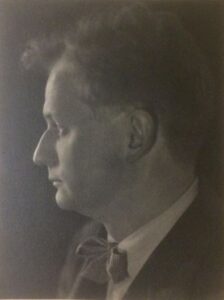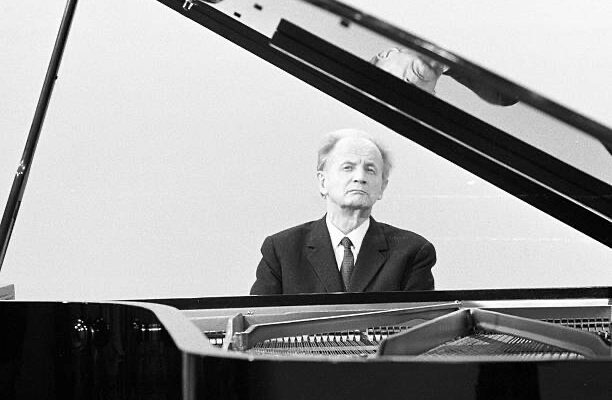On the 125th anniversary of Wilhelm Kempff’s birth, I offer a very brief selection of some recordings made throughout his long career.

Kempff’s name was one of the most visible in record stores for a very long time: he was a long-time fixture on the Deutsche Grammophon roster, and there is probably hardly a classical music fan in the world who didn’t have some of his records in their collection. Once I got immersed in historical recordings, however, I became interested in performers who were both active in the earlier years of recordings and also less known than the headlining pianists from the LP era. Today I appreciate a lot of different styles of playing and I will admit that much of what I heard of Kempff’s discography over the years does not appeal to me as much as the playing of other artists. That said, I am very well aware that artists might have played very differently at various times of their lives and also in live concerts vs. recording studios; Kempff is one of those, and there are indeed many performances of this pianist that I enjoy tremendously.
Kempff gave his first major recital in 1917 and his final recital in 1981 (he died in 1991 at the age of 95), meaning that his career spanned nearly 65 years. Given the evolution of recording technology in this period went from acoustical (horn-amplified) 78rpm discs through to stereo LPs, it is little wonder that many of the artists first performances would be overlooked in favour of his later recordings. Nevertheless, it is always interesting to hear artists in their youth (and in later years, for different reasons) – and that is certainly the case with Kempff.
It is only recently that I came across this acoustical recording of Kempff playing the Schumann Toccata, a disc for the Polydor label that I’ve never seen reissued. We find him playing here with wonderful clarity and dexterity, great rhythmic vitality, and clearly voiced melodic lines, as well as with more abandon than was often heard in later years.
Given that Kempff recorded the complete Beethoven Sonatas twice, in mono between 1951 and 1956 and again in stereo in 1964-65. It’s worth noting that he was in his 50s and 60s at the time, so his playing would naturally be very different than when he was in his 20s, which makes his earlier performances fascinating to hear. While the APR label has done a wonderful job in reissuing a number of his earlier accounts of Beethoven Sonatas and Concertos (highly recommended releases, as always with that label), the acoustic recording of the Appassionata Sonata below – another Polydor recording, ca.1924-25 – has never been reissued.
Another marvellous early recording, this time benefitting from amplified microphone technology (aka ‘electrical recording’), is this stunning 1935 reading of the Schubert-Liszt “Horch, horch, die Lerch” (“Hark, Hark, the Lark”), which captures his tonal colours and deft articulation to perfection:
One of the issues with the music industry is how typecast artists can become: Kempff was primarily known for his readings of Beethoven and Brahms, but his repertoire was vaster, even if his studio discography does not reveal much of the repertoire that one might encounter in his concert appearances. This 1945 German radio broadcast of the artist in Gabriel Fauré’s gorgeous Nocturne No.6 is a significant departure from the repertoire with which he is associated and is an absolutely marvellous reading, captured on tape at a time when major labels were still recording directly onto disc: what sumptuous phrasing, long lines, fluid legato, flawlessly-timed pedalling, magical dynamic shadings (the pianissimo that comes in at the 4-minute mark is absolutely breathtaking), and attentive voicing.
Kempff’s gorgeous 1955 recording of Rameau’s Le Rappel des Oiseaux is another departure from his repertoire, played with utterly beguiling tone, magnificent pedal effects, and exquisite sensitivity:
I don’t mean to suggest that all of Kempff’s earlier recordings are inherently better, as there are indeed some marvellous late performances, such as this 1975 account of Bach transcriptions (with a couple by Gluck at the end), played with reverence and astounding beauty:
A final offering of Kempff in concert in 1978, near the end of his career – aged 82, just a few years before he retired – finds him in repertoire for which he is also not as known: Chopin. This live performance of the Nocturne in B Major Op.9 No.3 finds him playing with wonderful tone, soaring phrasing, and tremendous ease and freedom.
Kempff’s place in the pantheon of pianists is secure as a result of his massive discography and a stable reputation amongst music lovers. I can only hope that more of his discography – and his concert performances – will only help to expand our perception of this marvellous artist.
